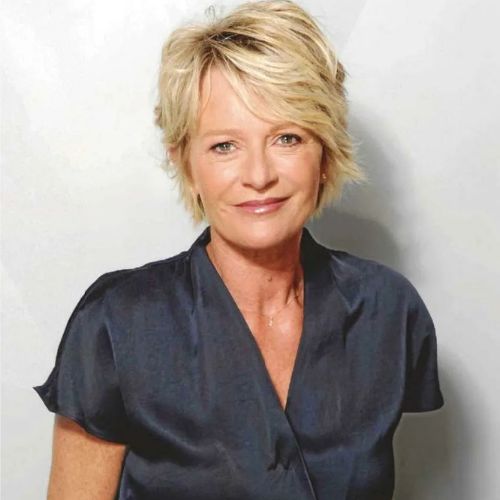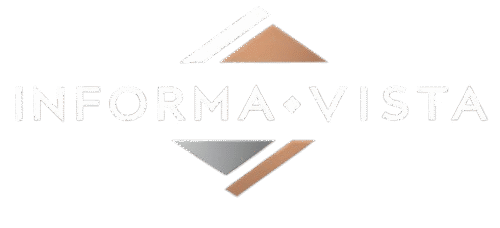Introduction
The internet loves a mystery. Especially when it involves public figures like Elizabeth Rizzini, the beloved BBC Weather presenter who’s graced our screens for years. Lately, searches about “Elizabeth Rizzini disability” have spiked dramatically. But here’s the thing: curiosity doesn’t equal truth.
This article cuts through the noise. We’re separating verified facts from baseless speculation. No clickbait culture nonsense here just honest, respectful examination of why these Elizabeth Rizzini health rumours emerged and what they reveal about our media consumption habits. Let’s dive in with empathy and intelligence.
Who is Elizabeth Rizzini? A Brief Biography
Elizabeth Rizzini stands as one of Britain’s most recognizable weather broadcasters. She didn’t stumble into this career accidentally.
Her journey began with rigorous academic training. She studied geography and meteorology at distinguished universities. That scientific foundation matters when you’re explaining complex climate patterns. She joined the BBC weather team years ago. Since then, she’s become a trusted voice during extreme weather events across the UK.
Elizabeth Rizzini Wikipedia
While Elizabeth Rizzini maintains a relatively private profile online, her professional credentials speak volumes. She holds degrees in geography and atmospheric science. Her BBC London Weather presentations combine scientific accuracy with accessible communication.
She’s covered everything from devastating floods to record-breaking heatwaves. Her expertise extends beyond reading autocues she genuinely understands meteorological science. That’s why audiences trust her weather forecasting abilities implicitly.
Elizabeth Rizzini Age
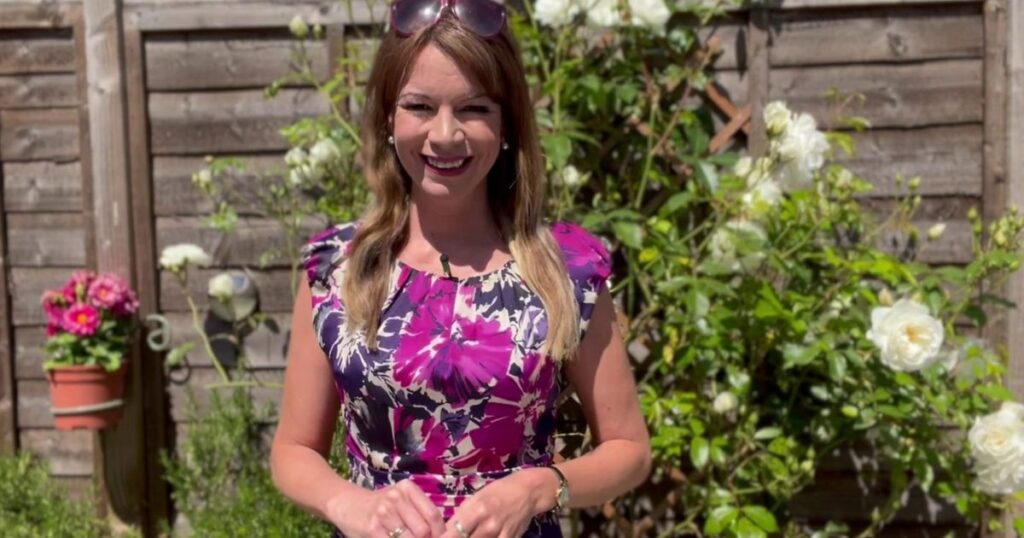
Elizabeth Rizzini was born in the early 1980s. That makes her roughly in her early forties. Age brings experience in broadcasting. She’s weathered (pun intended) countless challenging on-air situations. Her maturity enhances her professional credibility significantly.
Elizabeth Rizzini Husband
Elizabeth Rizzini keeps her personal life deliberately private. She’s married and has children. That’s essentially all public information confirms. And honestly? That’s entirely her right to maintain boundaries.
Public figures deserve family privacy. Their spouses and children didn’t choose visibility. Elizabeth Rizzini’s career achievements matter infinitely more than her domestic arrangements.
Elizabeth Rizzini Hips
Let’s address this search term head-on. It’s problematic, frankly.
Why do people search this? Because clickbait media and gossip sites objectify women constantly. Elizabeth Rizzini’s professional accomplishments her meteorological expertise, her clear communication during crisis weather events, her years of dedicated BBC News service get overshadowed by body-focused searches.
This reflects broader celebrity gossip culture issues. Women in media face relentless physical scrutiny. Men rarely experience equivalent objectification. It’s time we redirected our curiosity toward substantive professional achievements instead.
Elizabeth Rizzini’s Career at BBC Weather
Elizabeth Rizzini joined BBC Weather over a decade ago. Her rise wasn’t meteoric it was earned through consistent excellence.
She presents forecasts across multiple BBC platforms:
- BBC London regional broadcasts
- BBC Breakfast national segments
- BBC News weather updates
- Special climate reporting coverage
Her weather communication style balances scientific precision with accessibility. She explains atmospheric pressure systems without condescension. During the 2022 UK heatwaves, her coverage helped millions understand unprecedented temperatures. When winter floods devastated communities, her forecasts provided crucial preparation time.
| Career Highlight | Year | Impact |
|---|---|---|
| Joined BBC Weather | ~2010s | Established trusted presence |
| Covered extreme heatwaves | 2022 | Critical public safety information |
| Led flood warning coverage | Multiple years | Community preparedness |
| Regular BBC Breakfast appearances | Ongoing | National visibility |
Her professionalism never wavers. Even when technology fails mid-broadcast, she adapts seamlessly. That’s mastery.
The Origins of Elizabeth Rizzini Disability Rumours
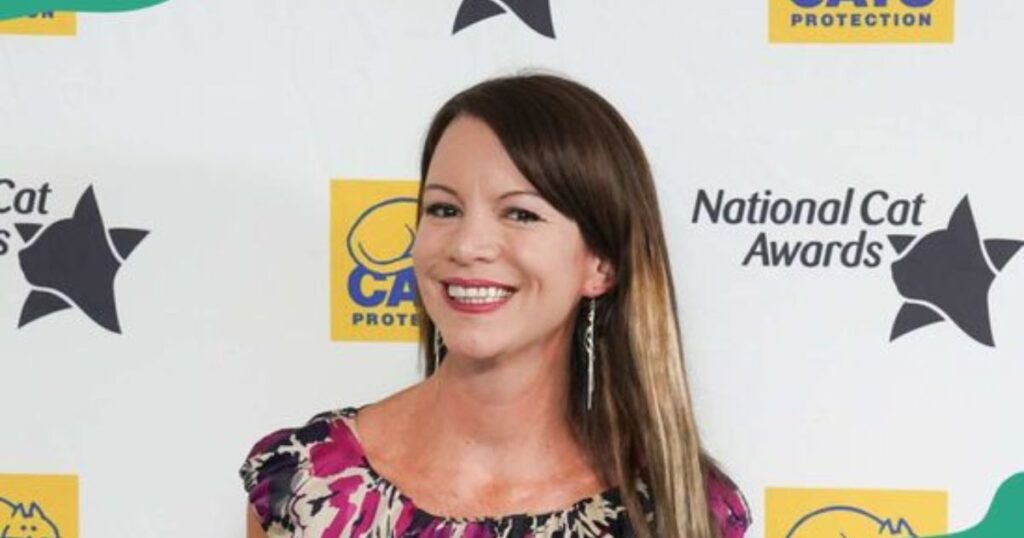
So where did these disability rumours actually start? Pinpointing exact origins proves difficult with online misinformation.
Speculation appears to have emerged from:
- Social media platforms like Twitter and Facebook
- Internet forums discussing BBC presenters
- Reddit threads analyzing on-screen appearances
- Gossip sites manufacturing controversy for clicks
Some observers noted her occasional limping or movement patterns. Others claimed insider knowledge without evidence. Social media gossip amplified these whispers exponentially. Within months, “Elizabeth Rizzini disability” became a trending search term.
But here’s what actually happened: absolutely nothing confirmed. No official statements. No credible journalism. Just speculation snowballing through digital echo chambers.
Separating Facts from Speculation
Let’s get brutally honest about Elizabeth Rizzini facts versus fiction.
Verified Facts:
- Elizabeth Rizzini works professionally for BBC Weather
- She maintains consistent on-air presence
- No official health announcements exist
- She hasn’t publicly discussed any disability
Unverified Speculation:
- Claims about specific medical conditions
- Assumptions based on movement observations
- Anonymous “insider” reports on forums
- Manufactured narratives from clickbait sources
Critical thinking demands we question unsubstantiated claims. Visible differences don’t confirm disabilities automatically. Maybe someone had a temporary injury. Perhaps camera angles created illusions. Or maybe revolutionary concept it’s none of our business without confirmation.
The truth about Elizabeth Rizzini disability claims? There isn’t one. Because legitimate information doesn’t exist publicly.
How Media Handles Disability Topics
Mainstream media faces ethical tightropes when covering disability. Responsible journalism requires several principles:
Best Practices:
- Obtain subject consent before health discussions
- Use person-first language appropriately
- Avoid sensationalism and clickbait culture
- Prioritize accuracy over speculation
- Respect privacy boundaries fiercely
Problematic Approaches:
- Speculating without evidence or confirmation
- Objectifying public figures’ bodies
- Creating controversy for engagement metrics
- Ignoring privacy rights entirely
Organizations like the BBC follow strict editorial guidelines. They wouldn’t speculate about employees’ health conditions. Yet independent blogs, forums, and social media accounts operate without such constraints. That’s where misinformation breeds fastest.
Public Fascination with Celebrity Health
Why do we obsess over celebrity health speculation? Psychology offers several explanations.
Parasocial relationships create perceived intimacy with public figures. We watch Elizabeth Rizzini regularly. Our brains interpret this familiarity as actual connection. When curiosity strikes, boundaries blur dangerously.
Public curiosity also reflects deeper anxieties. Health speculation lets people project their concerns outward. It creates conversational currency within social groups. Unfortunately, it simultaneously violates personal boundaries systematically.
“The line between public interest and public intrusion has become increasingly blurred in the digital era.” Media Ethics Scholar
Celebrity privacy deserves protection despite visibility. Being a public figure doesn’t negate fundamental dignity rights. Elizabeth Rizzini chose weather broadcasting not surrender of bodily autonomy.
Elizabeth Rizzini and Privacy in the Public Eye
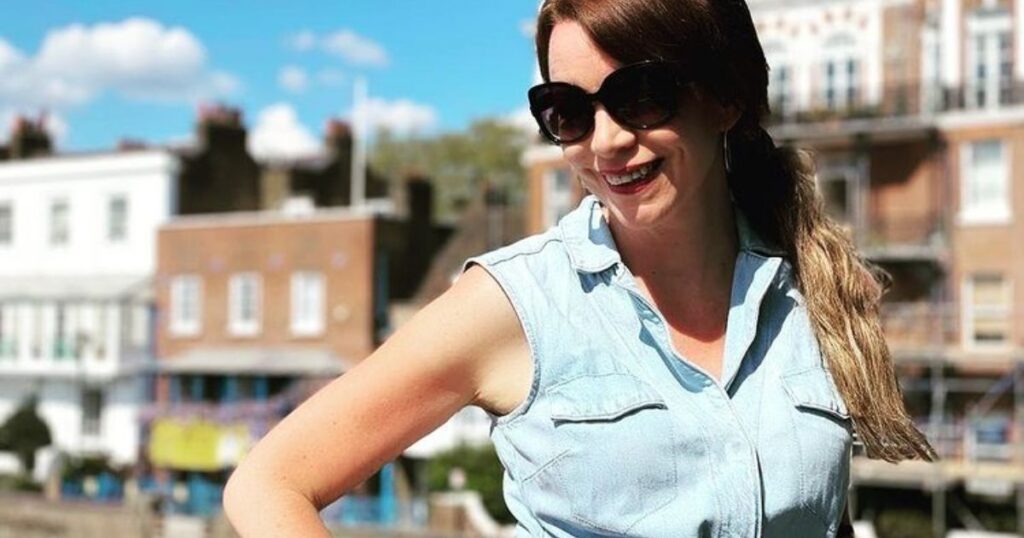
The public figure paradox creates impossible situations. Celebrities require visibility professionally. Yet that same visibility invites invasive scrutiny.
What do public figures actually owe audiences?
- Professional competence and integrity
- Transparency about work-related matters
- Respectful engagement when appropriate
What they don’t owe:
- Complete personal life disclosure
- Health condition explanations
- Access to family members
- Body commentary tolerance
Elizabeth Rizzini’s professional reputation rests on meteorological expertise. Her potential health status disclosed or not doesn’t affect weather accuracy. Therefore, it remains legitimately private information.
Representation of Disability in Broadcasting
Disability representation in UK broadcasting has improved gradually. But significant barriers persist stubbornly.
Several presenters have discussed disabilities openly:
- Frank Gardner (BBC security correspondent, wheelchair user)
- Sophie Morgan (Channel 4 presenter, disability advocate)
- Cerrie Burnell (CBeebies presenter, limb difference)
Their presence matters tremendously. Representation challenges stereotypes powerfully. It normalizes disability within professional contexts. Young disabled viewers see career possibilities expanding.
Yet inclusivity in media remains incomplete. Disabled journalists face:
- Physical accessibility barriers in studios
- Unconscious bias during hiring processes
- Limited mentorship and advancement opportunities
- Tokenization rather than authentic integration
Diversity in broadcasting requires systemic commitment. Not performative gestures or superficial appointments.
Why Inclusivity in Media Matters
Inclusivity transcends feel-good corporate messaging. It fundamentally reshapes public perception.
When audiences see disabled presenters competently performing roles, stereotypes crumble. Broadcasting becomes a reflection of society’s actual diversity. Children develop healthier attitudes toward difference. Adults confront unconscious biases more directly.
Media sensitivity creates ripple effects across culture. It influences:
- Educational expectations for disabled students
- Employment opportunities across industries
- Social acceptance within communities
- Policy discussions about accessibility
Disability awareness campaigns gain traction when media leads authentically. That’s why representation matters beyond individual careers.
Social Media’s Role in Spreading Rumours
Social media misinformation operates on algorithmic steroids. Platforms prioritize engagement over accuracy consistently.
Here’s how Internet rumours spread:
- Initial post makes unverified claim
- Shares and retweets amplify visibility exponentially
- Confirmation bias causes believers to seek supporting “evidence”
- Echo chambers reinforce narratives without critical examination
- Mainstream media occasionally picks up stories, legitimizing them
Twitter, Facebook, and Reddit all contributed to Elizabeth Rizzini speculation. Once momentum builds, fact-checking struggles to compete. Corrections reach fractions of original rumour audiences.
Audience curiosity demands healthier digital literacy. Question sources relentlessly. Verify through multiple credible outlets. Resist sharing unconfirmed information reflexively.
Lessons from the Elizabeth Rizzini Disability Speculation
This case study teaches valuable lessons about media responsibility and personal ethics.
Key Takeaways:
- Verification matters before sharing health information
- Privacy boundaries deserve protection universally
- Critical thinking prevents misinformation spread
- Empathy should guide public discourse always
- Responsible reporting requires journalistic standards
We control our participation in speculation culture. Every time we resist sharing unverified gossip, we weaken clickbait media’s power. Every time we redirect conversations toward substantive achievements, we prioritize dignity appropriately.
Elizabeth Rizzini’s story or rather, the fabricated narrative surrounding her reflects our collective choices. We can choose differently moving forward.
The Broader Impact on Disability Awareness
Disability speculation harms communities beyond individual subjects. It reinforces problematic assumptions about bodies and normalcy.
When people obsess over whether someone has a disability, they implicitly suggest disability requires explanation or justification. They treat it as scandal-worthy rather than neutral human variation.
Disability myths perpetuate through such behavior:
- Myth: Disabilities are always visible
- Myth: Disabled people must disclose conditions
- Myth: Disability diminishes professional capability
- Myth: Public figures forfeit all privacy
Awareness and acceptance require dismantling these misconceptions systematically. Sensitivity in media reporting contributes significantly toward that goal.
FAQs
Does Elizabeth Rizzini have a disability?
No confirmed information exists publicly. Elizabeth Rizzini hasn’t made official statements regarding disability. Speculation remains entirely unverified. Responsible journalism demands respecting her privacy until she chooses otherwise.
Why are there rumours about Elizabeth Rizzini?
Online speculation emerged from social media observations and forum discussions. No credible evidence supports these claims. Clickbait culture amplified rumors for engagement metrics rather than truth.
What is Elizabeth Rizzini’s BBC career background?
She’s an accomplished meteorologist with BBC Weather and BBC London. Her expertise includes atmospheric science and climate communication. She’s covered major weather events with professionalism consistently.
How should media cover disability topics ethically?
Media ethics require consent, accuracy, person-first language, and avoiding sensationalism. Privacy rights must be respected regardless of public figure status. Fact-checking should precede all health-related reporting.
Why does disability representation in broadcasting matter?
Representation challenges stereotypes, normalizes diversity, and creates opportunities. It benefits disabled audiences specifically and society broadly. Inclusivity reflects authentic human experience diversity.
How can I be more respectful discussing disabilities?
Use person-first language when appropriate. Avoid assumptions or speculation entirely. Prioritize empathy and education over curiosity. Recognize disability as neutral human variation.
Final Thoughts
Elizabeth Rizzini deserves recognition for meteorological excellence not invasive health speculation. Let’s redirect our public fascination toward substantive achievements. Let’s demand ethical reporting from media sources. And let’s examine our own participation in harmful curiosity culture.
That’s how we create healthier, more respectful digital spaces. One conscious choice at a time.
